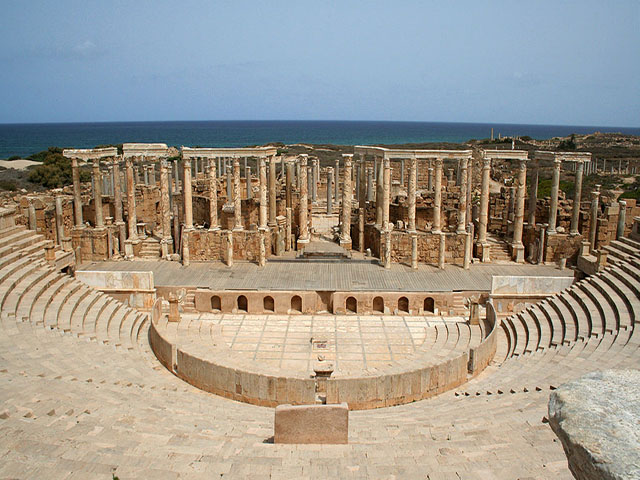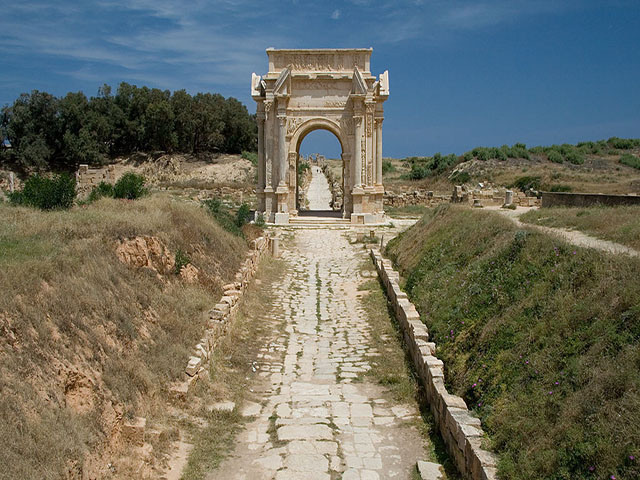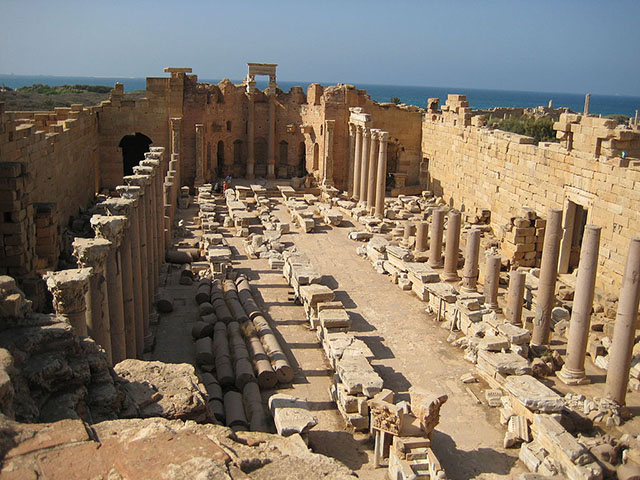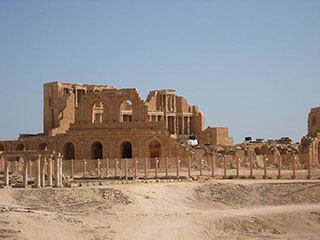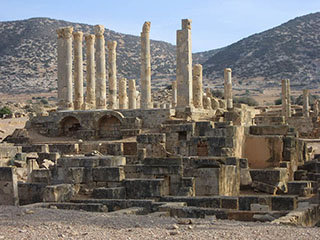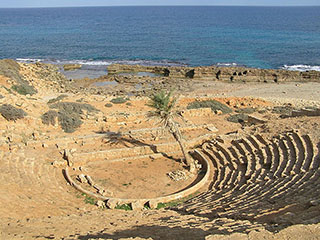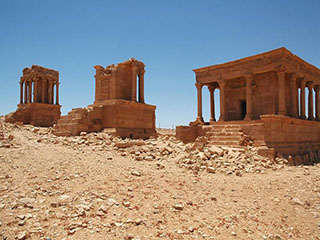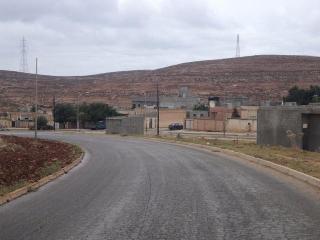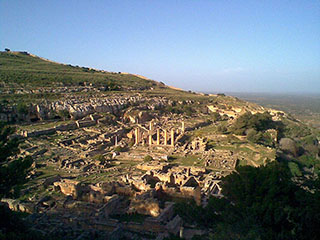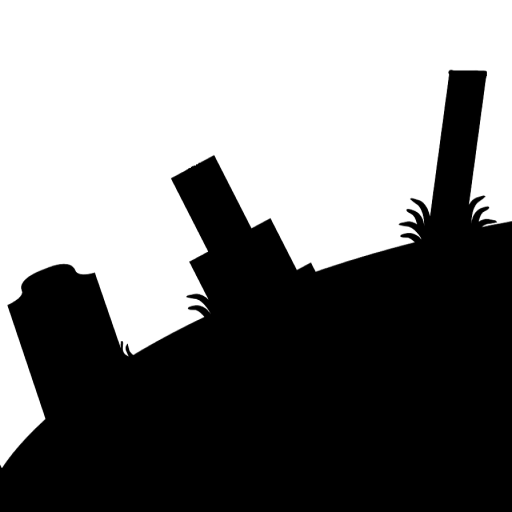- Leptis Magna
-
Leptis Magna
Leptis Magna, Great Leptis, Leptis, also known as Lebda, Lectis Magna, Lepcis Magna, Lpqy, Neapolis, is a ruined Roman city located in Khoms, Murqub District, Libya. The site is one of the most spectacular and unspoiled Roman ruins in the Mediterranean. It was founded by a group of local Berbers and Phoenicians sometime around 1000 BC. In 42 BC, the city became under the rule of the Roman Empire. The ancient city of Leptis Magna includes several Roman monuments, the most important of which are the Roman theater, the baths of Emperor Hadrian and Arch of Septimius Severus. Leptis Magna was inscribed as a UNESCO World Heritage Site in 1982.
The site is a UNESCO World Heritage site with the official name, Archaeological site of Leptis Magna. by Daviegunn, Public domain, via Wikimedia Commons
by Daviegunn, Public domain, via Wikimedia Commons by Luca Galuzzi, CC BY-SA 2.5, via Wikimedia Commons
by Luca Galuzzi, CC BY-SA 2.5, via Wikimedia Commons by SashaCoachman, CC BY-SA 3.0 or GFDL, via Wikimedia CommonsElevation: 15 m
by SashaCoachman, CC BY-SA 3.0 or GFDL, via Wikimedia CommonsElevation: 15 m
Humidity: %Wind:Powered by: OpenWeatherMap
Leptis Magna
World Heritage Site
Date of Inscription
1982

First Millennium BC
Phoenician + Berber
Roman
- Page Access
-
- 3.8 Average Based on 16 Reviews
- Related Links
- Add Your Comment
-
The published comments do not represent the opinion of our site, but express the opinion of their publishers.Please Log in to post your comments.
